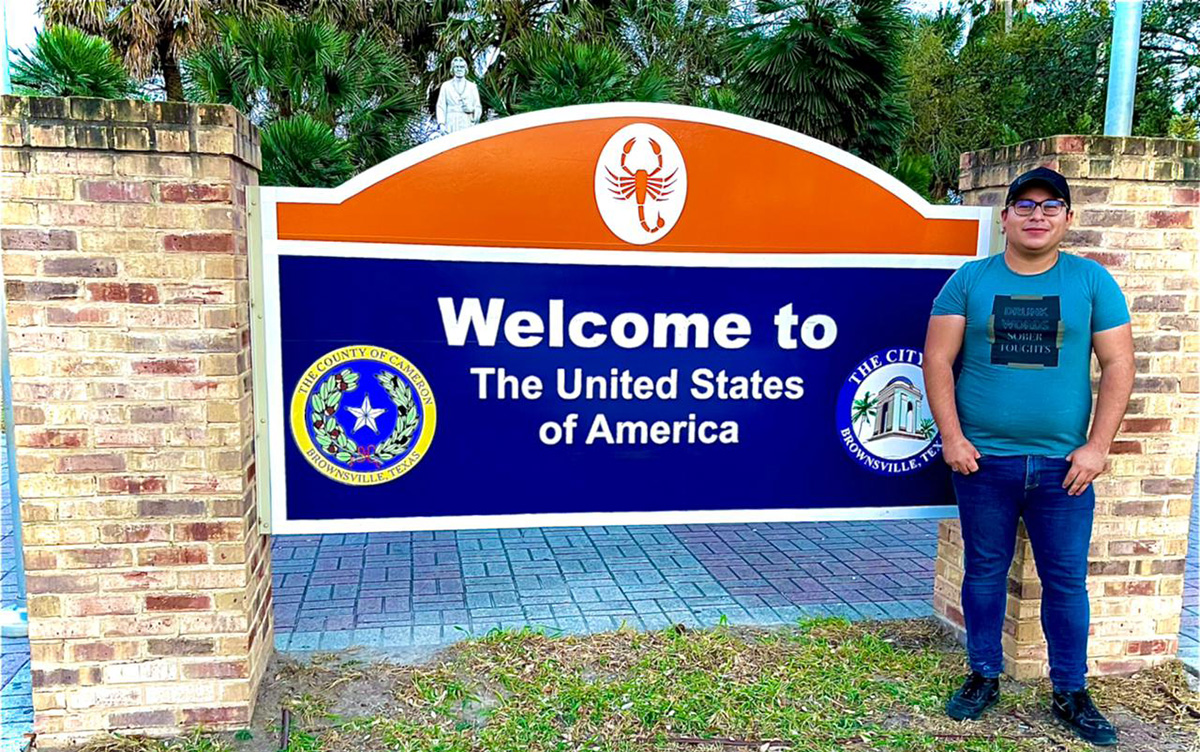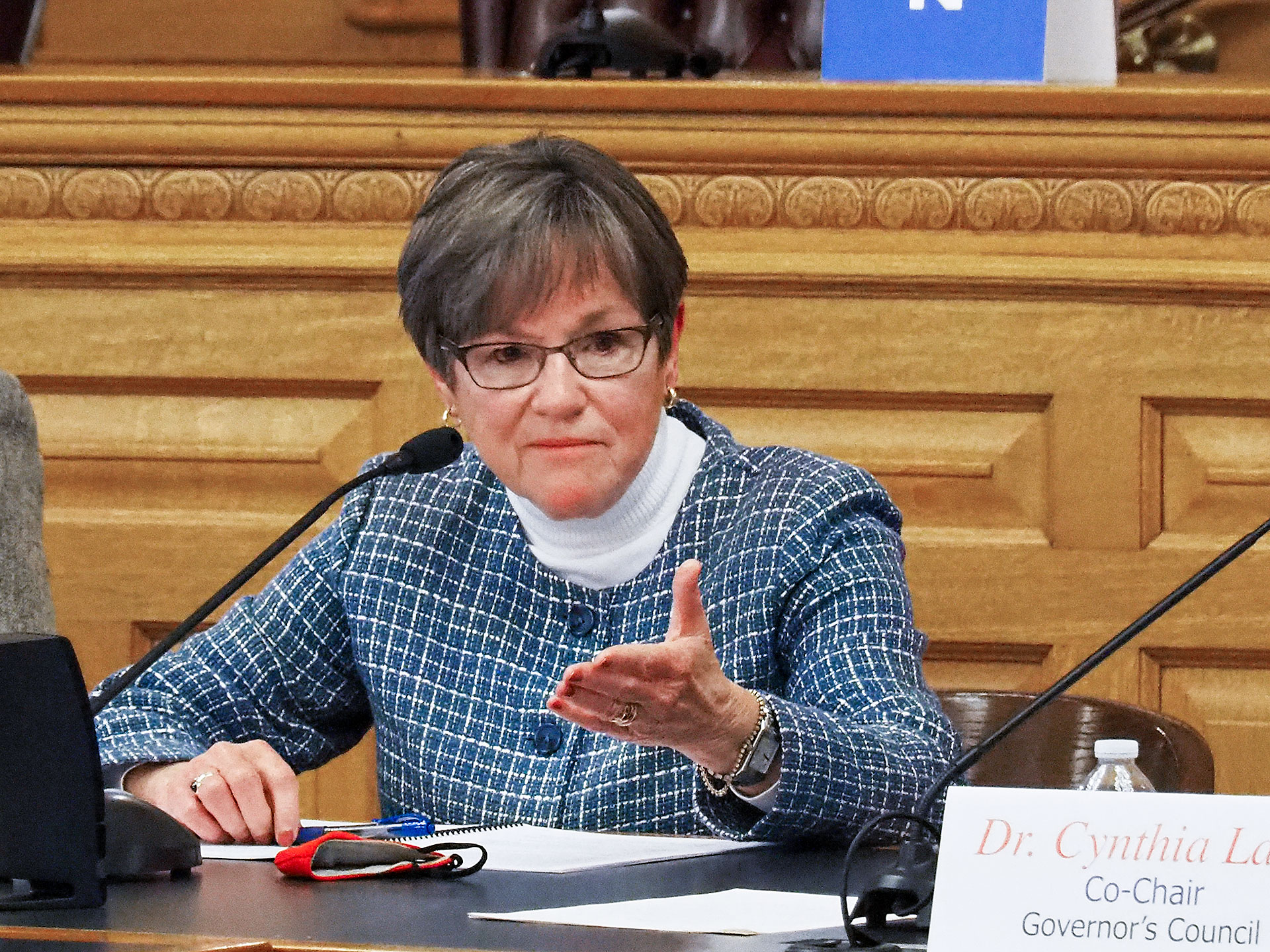National
2012 could prove landmark year for marriage rights
Will Washington, New Jersey, Maryland legalize gay nuptials?

This could be a landmark year in the marriage equality movement, as several states appear close to enacting marriage rights for gay and lesbian couples.
Advocates are working to legalize marriage rights for gay couples in Washington State, Maryland and New Jersey; efforts are also underway to pursue civil unions in Colorado. Meanwhile, opponents are hoping to repeal same-sex marriage in New Hampshire.
Washington State could be in the strongest position among other states where advocates are undertaking efforts to legalize marriage equality. The legislation was introduced last week by request from Gov. Chris Gregoire (D), who announced her support in a news conference Jan. 4.
“I’m announcing my support for a law that gives our same-sex couples in our state the right to receive a marriage license in Washington — the same right given to our heterosexual couples,” Gregoire said. “It is time, it’s the right thing to do — and I will introduce the bill to make it happen.”
The number of co-sponsors for the legislation in the House already exceeds the votes needed for passage there. In the Senate, the legislation has 23 co-sponsors, which is two supporters short of 25 votes needed for passage.
Josh Friedes, marriage equality director for Equal Rights Washington, said he’s “really delighted” with the level of support the legislation has found upon introduction — especially from two Republican state senators who’ve already signed on in support.
“That was really important because it shows Republicans in Washington State that the moral arc is bending toward support for marriage,” Friedes said.
The Washington State Legislature is meeting only for a 60-day period this year, so if legislation is to make it to Gregoire’s desk, the marriage bills would have to pass by March 8. Per legislative rules, one version of the legislation would have to pass either the House or Senate by Feb. 14. Committee hearings are scheduled Monday.
In Maryland, Gov. Martin O’Malley is set to introduce marriage equality legislation as part of his legislative package for 2012. Last year, the bill legislation passed the Senate, but advocates pulled the bill from the House floor after they determined they didn’t have enough votes for passage.
Lesbian Del. Mary Washington (D-Baltimore City) said chances for passage in the House have “greatly improved” now that O’Malley has made marriage a legislative priority.
“We’ve had the whole summer to talk to people, we’ve got more people involved and I think it will have a better shot,” Washington said.
Washington added that assigning the bill jointly to two panels — the Health & Government Operations Committee and the Judiciary Committee — would broaden the number of lawmakers who will hear testimony on marriage.
“I think as more delegates get to see what impact the current exclusion of gays and lesbians from the right to marry is doing for Maryland families, I think they’ll understand that passing civil marriage will be the right thing to do,” Washington said.
As far as timing for the vote, Washington said she thinks the vote on the marriage bill will take place before March — when it happened last year — because of the heavy workload lawmakers face this time around.
But Washington State and Maryland will face additional challenges even if the governors in those states sign the marriage legislation into law because residents there could put the measures on the ballot in November through a voter-initiated referendum process.
In Washington State, the signatures needed to bring a measure to referendum is 4 percent of the total votes from the last gubernatorial election, which in terms of absolute numbers would be 120,577 names. In Maryland, a total of just 55,736 signatures is necessary to put a law on the ballot in the upcoming election.
Washington said a referendum on the marriage bill in Maryland is a possibility for which advocates of same-sex marriage must prepare.
“I’m hoping that it doesn’t go to referendum, but if it does, I’m confident the citizens of Maryland will know that it’s time for all families and people to be treated equally under the Maryland Constitution,” Washington said.
Friedes said advocates in Washington State are taking “nothing for granted” after previous losses of same-sex marriage at the ballot and encouraged LGBT families to talk to others there about “why marriage matters.”
“We need to grow the number of people who support marriage equality and make sure that those who do, vote,” Friedes said. “The thing that would hurt us the most is if people become over-confident.”
Another state where advocates are hoping for passage of same-sex marriage is New Jersey, where legislation was introduced last week in both chambers of the legislature. A Senate committee is set to hold a hearing on the legislation Tuesday and the Assembly is expected to have one afterward.
But New Jersey is unlike Washington State or Maryland in that its governor, Republican Chris Christie, campaigned on a promise to veto any such bill that reached his desk.
However, when asked about the marriage bill this month, Christie didn’t reiterate his pledge to veto and made comments suggesting that his tune may have changed on the issue.
“When forced to make a decision, if forced to make a decision on it, I’ll make a decision,” Christie reportedly told NJ.com in Camden, N.J.
Gay Assembly member Reed Gusciora (D-Princeton) said he “wouldn’t rule the governor out” as someone who would sign the marriage bill if it reaches his desk.
“In the last several weeks, he’s visited four out of the six states that have marriage equality: Iowa, New Hampshire, Massachusetts and New York,” Gusciora said. “I don’t think he saw any diminishment in the institution of marriage other than when Newt Gingrich was around.”
Gusciora added he thinks the legislation has a “good shot of passage” in the legislature and the bill should reach Christie’s desk by the end of February.
New Jersey has no voter-initiated referendum process, so if Christie signs or allows the legislation to become law, it’ll stay on the books.
In Colorado, advocates are pressing to push civil unions legislation into law. Last year, the legislation was approved by the Senate, but a House committee voted 6-5 against reporting it out to the floor.
Sarah Warbelow, state legislative director for the Human Rights Campaign, said the legislation will have to go through the Senate once again because the House committee voted to kill the bill last year.
“All indicators suggest had it gotten out of committee, it would have passed on the floor of the House, which is why advocates felt comfortable enough to really push to have it come up again rather than waiting until after elections and then having new legislators in place,” Warbelow said.
Warbelow added Colorado has a longer legislative session that extends until May, so the civil unions bill may not be acted upon as soon as the marriage bills in other jurisdictions.
Advocates are pursuing civil unions in Colorado as opposed to marriage rights because the state constitution has an amendment defining marriage as between one man and one woman.
While progress on relationship recognition could come in those states, there is also the potential for repeal of same-sex marriage in New Hampshire.
Gov. John Lynch (D), who signed marriage equality into law in 2009, has pledged to veto repeal, but the Republican supermajority of the legislature may have enough votes to override his veto.
Warbelow said the legislature is “highly likely” to pass the repeal legislation in the first round, but “all the effort” has been focused on making sure there aren’t enough votes to overturn Lynch’s veto.
The legislature has pushed back the timing for the repeal vote. According to the Eagle Tribune, House Majority Leader D.J. Bettencourt said he won’t bring up the repeal measure until February.
“We must deal with some critical financial and economic-related legislation first, as well as legislative redistricting, prior to any discussion of gay marriage,” Bettencourt was quoted as saying. “It’s critical to keep legislative priorities in their proper order.”
Other bills related to advancing marriage rights for same-sex couples could emerge in Illinois and Rhode Island; both states passed civil unions last year.

The U.S. has granted asylum to a Guatemalan LGBTQ activist who fled his country in 2019.
Estuardo Cifuentes and his partner ran a digital marketing and advertising business in Guatemala City.
He previously told the Washington Blade that gang members extorted from them. Cifuentes said they closed their business after they attacked them.
Cifuentes told the Blade that Guatemalan police officers attacked him in front of their home when he tried to kiss his partner. Cifuentes said the officers tried to kidnap him and one of them shot at him. He told the Blade that authorities placed him under surveillance after the incident and private cars drove past his home.
Cifuentes arrived in Matamoros, a Mexican border city that is across the Rio Grande from Brownsville, Texas, in June 2019. He asked for asylum in the U.S. based on the persecution he suffered in Guatemala because of his sexual orientation.
The Trump administration forced Cifuentes to pursue his asylum case from Mexico under its Migrant Protection Protocols program that became known as the “remain in Mexico” policy.
Cifuentes while in Matamoros ran Rainbow Bridge Asylum Seekers, a program for LGBTQ asylum seekers and migrants that the Resource Center Matamoros, a group that provides assistance to asylum seekers and migrants in the Mexican border city, helped create.
The Biden-Harris administration in January 2021 suspended enrollment in MPP. Cifuentes entered the U.S. on March 3, 2021.
“We are profoundly relieved and grateful that my husband and I have been officially recognized as asylees in the United States,” Cifuentes told the Blade on Monday in an email. “This result marks the end of a long and painful fight against the persecution that we faced in Guatemala because of our sexual orientation.”
Vice President Kamala Harris is among those who have said discrimination and violence based on sexual orientation are among the root causes of migration from Guatemala and other countries in Central America.
Cifuentes is now the client services manager for Lawyers for Good Government’s Project Corazón, a campaign that works “hard to reunite and defend the rights of families impacted by inhumane immigration policies.” He told the Blade he will continue to help LGBTQ asylum seekers and migrants.
“In this new chapter of our lives, we pledge to work hard to support others in similar situations and to contribute to the broader fight for the rights and acceptance of the LGBTQ+ migrant community,” said Cifuentes. “We are hopeful that our story will serve as a call to action to confront and end persecution based on gender identity and sexual orientation.”
U.S. Supreme Court
US Supreme Court rules Idaho to enforce gender care ban
House Bill 71 signed in 2023


BY MIA MALDONADO | The U.S. Supreme Court has allowed Idaho to enforce House Bill 71, a law banning Idaho youth from receiving gender-affirming care medications and surgeries.
In an opinion issued Monday, the U.S. Supreme Court granted the state of Idaho’s request to stay the preliminary injunction, which blocked the law from taking effect. This means the preliminary injunction now only applies to the plaintiffs involved in Poe v. Labrador — a lawsuit brought on by the families of two transgender teens in Idaho who seek gender-affirming care.
Monday’s Supreme Court decision enforces the gender-affirming care ban for all other trans youth in Idaho as the lawsuit remains ongoing in the Ninth Circuit Court of Appeals.

The American Civil Liberties Union and the ACLU of Idaho, both of whom represent the plaintiffs, said in a press release Monday that the ruling “does not touch upon the constitutionality” of HB 71. The groups called Monday’s ruling an “awful result” for trans Idaho youth and their families.
“Today’s ruling allows the state to shut down the care that thousands of families rely on while sowing further confusion and disruption,” the organizations said in the press release. “Nonetheless, today’s result only leaves us all the more determined to defeat this law in the courts entirely, making Idaho a safer state to raise every family.”
Idaho Attorney General Raúl Labrador in a press release said the state has a duty to protect and support all children, and that he is proud of the state’s legal stance.
“Those suffering from gender dysphoria deserve love, support and medical care rooted in biological reality,” Labrador said. “Denying the basic truth that boys and girls are biologically different hurts our kids. No one has the right to harm children, and I’m grateful that we, as the state, have the power — and duty — to protect them.”
Recap of Idaho’s HB 71, and what led to SCOTUS opinion
Monday’s Supreme Court decision traces back to when HB 71 was signed into law in April 2023.
The law makes it a felony punishable for up to 10 years for doctors to provide surgeries, puberty-blockers and hormones to trans people under the age of 18. However, gender-affirming surgeries are not and were not performed among Idaho adults or youth before the bill was signed into law, the Idaho Capital Sun previously reported.
One month after it was signed into law, the families of two trans teens sued the state in a lawsuit alleging the bill violates the 14th Amendment’s guarantee of equal protection under the law.
In late December, just days before the law was set to take effect in the new year, U.S. District Judge B. Lynn Winmill blocked the law from taking effect under a preliminary injunction. In his decision, he said he found the families likely to succeed in their challenge.
The state of Idaho responded by appealing the district court’s preliminary injunction decision to the Ninth Circuit, to which the Ninth Circuit denied. The state of Idaho argued the court should at least enforce the ban for everyone except for the plaintiffs.
After the Ninth Circuit’s denial, the Idaho Attorney General’s Office in February sent an emergency motion to the U.S. Supreme Court, the Idaho Press reported. Monday’s U.S. Supreme Court decision agrees with the state’s request to enforce its ban on trans health care for minors, except for the two plaintiffs.
******************************************************************************************

Mia Maldonado joined the Idaho Capital Sun after working as a breaking news reporter at the Idaho Statesman covering stories related to crime, education, growth and politics. She previously interned at the Idaho Capital Sun through the Voces Internship of Idaho, an equity-driven program for young Latinos to work in Idaho news. Born and raised in Coeur d’Alene, Mia moved to the Treasure Valley for college where she graduated from the College of Idaho with a bachelor’s degree in Spanish and international political economy.
******************************************************************************************
The preceding piece was previously published by the Idaho Capital Sun and is republished with permission.
The Idaho Capital Sun is the Gem State’s newest nonprofit news organization delivering accountability journalism on state politics, health care, tax policy, the environment and more.
We’re part of States Newsroom, the nation’s largest state-focused nonprofit news organization.
Kansas
Kansas governor vetoes ban on health care for transgender youth
Republican lawmakers have vowed to override veto


BY TIM CARPENTER | Gov. Laura Kelly flexed a veto pen to reject bills Friday prohibiting gender identity health care for transgender youth, introducing a vague crime of coercing someone to have an abortion and implementing a broader survey of women seeking abortion that was certain to trigger veto override attempts in the Republican-led House and Senate.
The decisions by the Democratic governor to use her authority to reject these health and abortion rights bills didn’t come as a surprise given her previous opposition to lawmakers intervening in personal decisions that she believed ought to remain the domain of families and physicians.
Kelly said Senate Bill 233, which would ban gender-affirming care for trans minors in Kansas, was an unwarranted attack on a small number of Kansans under 18. She said the bill was based on a politically distorted belief the Legislature knew better than parents how to raise their children.
She said it was neither a conservative nor Kansas value to block medical professionals from performing surgery or prescribing puberty blockers for their patients. She said stripping doctors of their licenses for serving health interests of patients was wrong. Under the bill, offending physicians could be face lawsuits and their professional liability insurance couldn’t be relied on to defend themselves in court.
“To be clear, this legislation tramples parental rights,” Kelly said. “The last place that I would want to be as a politician is between a parent and a child who needed medical care of any kind. And, yet, that is exactly what this legislation does.”
Senate President Ty Masterson (R-Andover) and House Speaker Dan Hawkins (R-Wichita) responded to the governor by denouncing the vetoes and pledging to seek overrides when legislators returned to the Capitol on April 26. The trans bill was passed 27-13 in the Senate and 82-39 in the House, suggesting both chambers were in striking distance of a two-thirds majority necessary to thwart the governor.
“The governor has made it clear yet again that the radical left controls her veto pen,” Masterson said. “This devotion to extremism will not stand, and we look forward to overriding her vetoes when we return in two weeks.”
Cathryn Oakley, senior director of the Human Rights Campaign, said the ban on crucial, medically necessary health care for trans youth was discriminatory, designed to spread dangerous misinformation and timed to rile up anti-LGBTQ activists.
“Every credible medical organization — representing over 1.3 million doctors in the United States — calls for age-appropriate, gender-affirming care for transgender and nonbinary people,” Oakley said. “This is why majorities of Americans oppose criminalizing or banning gender-affirming care.”
Abortion coercion
Kelly also vetoed House Bill 2436 that would create the felony crime of engaging in physical, financial or documentary coercion to compel a girl or woman to end a pregnancy despite an expressed desire to carry the fetus to term. It was approved 27-11 in the Senate and 82-37 in the House, again potentially on the cusp of achieving a veto override.
The legislation would establish sentences of one year in jail and $5,000 fine for those guilty of abortion coercion. The fine could be elevated to $10,000 if the adult applying the pressure was the fetuses’ father and the pregnant female was under 18. If the coercion was accompanied by crimes of stalking, domestic battery, kidnapping or about 20 other offenses the prison sentence could be elevated to 25 years behind bars.
Kelly said no one should be forced to undergo a medical procedure against their will. She said threatening violence against another individual was already a crime in Kansas.
“Additionally, I am concerned with the vague language in this bill and its potential to intrude upon private, often difficult, conversations between a person and their family, friends and health care providers,” the governor said. “This overly broad language risks criminalizing Kansans who are being confided in by their loved ones or simply sharing their expertise as a health care provider.”
Hawkins, the House Republican leader, said coercion was wrong regardless of the circumstances and Kelly’s veto of the bill was a step too far to the left.
“It’s a sad day for Kansas when the governor’s uncompromising support for abortion won’t even allow her to advocate for trafficking and abuse victims who are coerced into the procedure,” Hawkins said.
Emily Wales, president and CEO of Planned Parenthood Great Plains Votes, said HB 2436 sought to equate abortion with crime, perpetuate false narratives and erode a fundamental constitutional right to bodily autonomy. The bill did nothing to protect Kansas from reproductive coercion, including forced pregnancy or tampering with birth control.
“Planned Parenthood Great Plains Votes trusts patients and stands firmly against any legislation that seeks to undermine reproductive rights or limit access to essential health care services,” Wales said.
Danielle Underwood, spokeswoman for Kansas for Life, said “Coercion Kelly” demonstrated with this veto a lack of compassion for women pushed into an abortion.
The abortion survey
The House and Senate approved a bill requiring more than a dozen questions be added to surveys of women attempting to terminate a pregnancy in Kansas. Colorful debate in the House included consideration of public health benefits of requiring interviews of men about reasons they sought a vasectomy birth control procedure or why individuals turned to health professionals for treatment of erectile dysfunction.
House Bill 2749 adopted 81-39 in the House and 27-13 in the Senate would require the Kansas Department of Health and Environment to produce twice-a-year reports on responses to the expanded abortion survey. The state of Kansas cannot require women to answer questions on the survey.
Kelly said in her veto message the bill was “invasive and unnecessary” and legislators should have taken into account rejection in August 2022 of a proposed amendment to the Kansas Constitution that would have set the stage for legislation further limiting or ending access to abortion.
“There is no valid medical reason to force a woman to disclose to the Legislature if they have been a victim of abuse, rape or incest prior to obtaining an abortion,” Kelly said. “There is also no valid reason to force a woman to disclose to the Legislature why she is seeking an abortion. I refuse to sign legislation that goes against the will of the majority of Kansans who spoke loudly on Aug. 2, 2022. Kansans don’t want politicians involved in their private medical decisions.”
Wales, of Planned Parenthood Great Plains Votes, said the bill would have compelled health care providers to “interrogate patients seeking abortion care” and to engage in violations of patient privacy while inflicting undue emotional distress.
Hawkins, the Republican House speaker, said the record numbers of Kansas abortions — the increase has been driven by bans or restrictions imposed in other states — was sufficient to warrant scrutiny of KDHE reporting on abortion. He also said the governor had no business suppressing reporting on abortion and criticized her for tapping into “irrational fears of offending the for-profit pro-abortion lobby.”
******************************************************************************************

Tim Carpenter has reported on Kansas for 35 years. He covered the Capitol for 16 years at the Topeka Capital-Journal and previously worked for the Lawrence Journal-World and United Press International.
The preceding story was previously published by the Kansas Reflector and is republished with permission.
******************************************************************************************
The Kansas Reflector is a nonprofit news operation providing in-depth reporting, diverse opinions and daily coverage of state government and politics. This public service is free to readers and other news outlets. We are part of States Newsroom: the nation’s largest state-focused nonprofit news organization, with reporting from every capital.




















